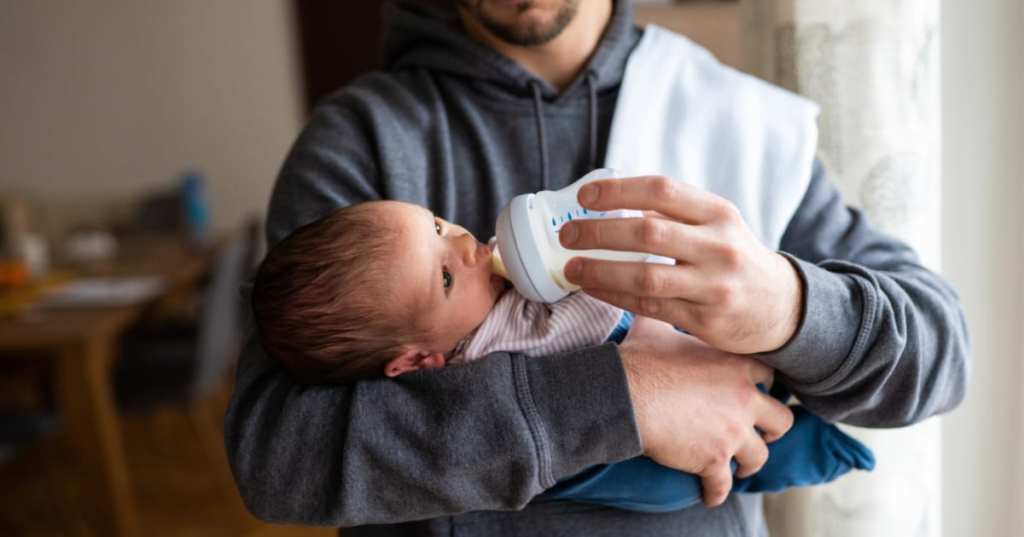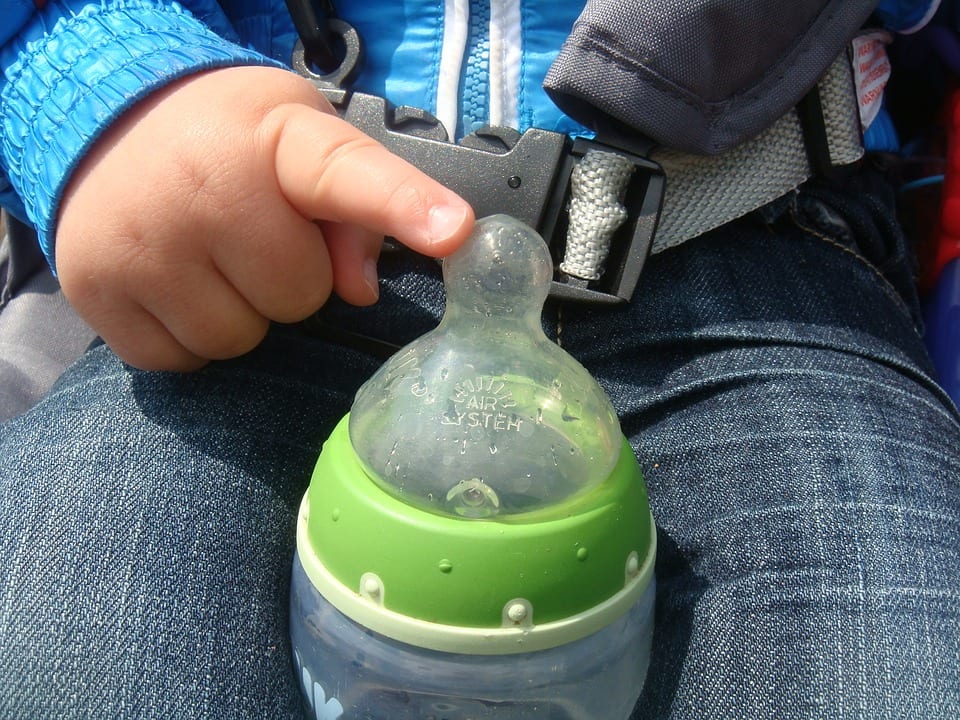Microplastics – which are, as you’ve probably surmised, tiny (sometimes microscopic) bits of plastic – are in literally everything.
They’re in our food, they’re in the things we use to store our food, they’re in our environments, even in the air we breathe and the rain that tumbles from the sky.
It stands to reason, then, that even the smallest among us ingests more than we’d like to imagine.
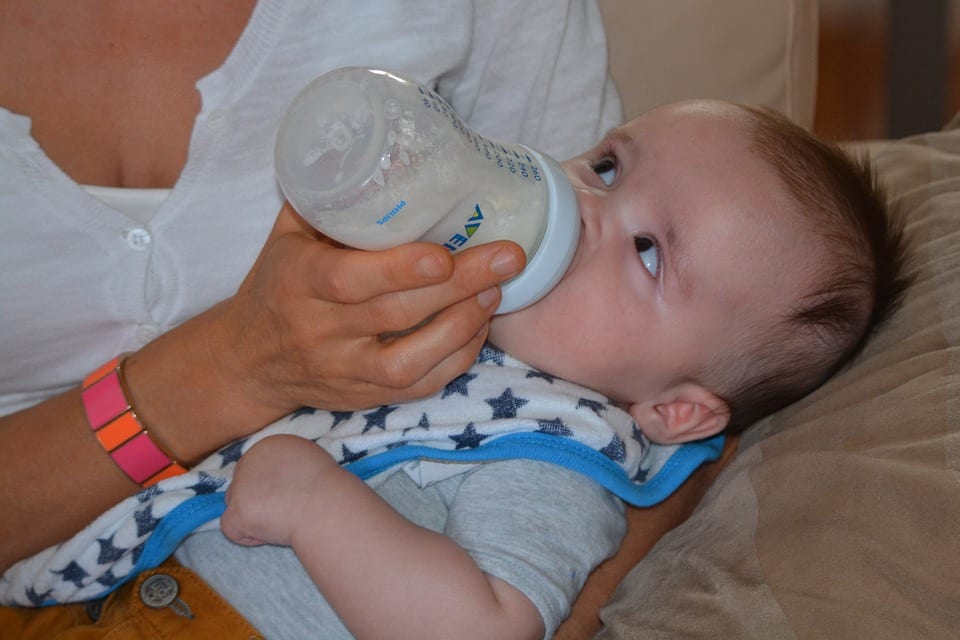
Image Credit: Pixabay
Just how many, though? Scientists say it’s tough to tell.
The answer is likely in the millions, though – tiny pieces of plastic that have leached into the formula from the surrounding bottle.
If you’re already freaking out, hold on. Even though the idea of feeding your precious newborn plastics sounds awful, the truth is that scientists still aren’t sure what (if any) negative effects they cause in the human body.
This most recent study comes out of Trinity College Dublin, in Ireland, and tested 10 types of bottles bought from Amazon. They proceeded to test the number of microplastics that leached out of each when going through the World Health Organization’s recommended sterilization process.
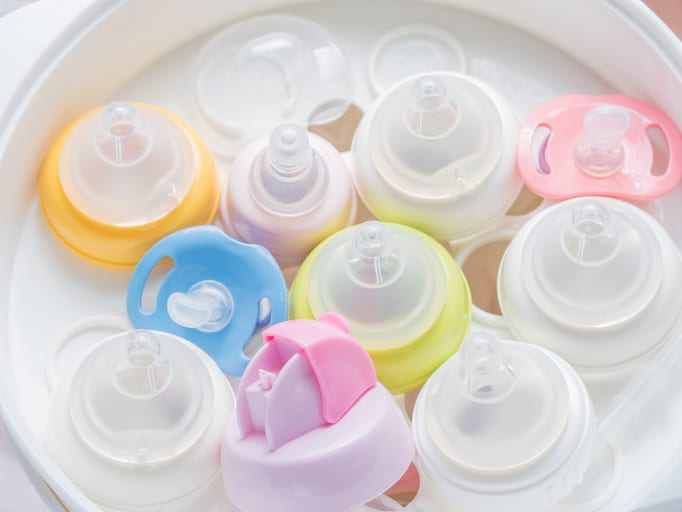
Image Credit: iStock
And if you’ve had a baby, you know exactly how much sterilizing happens in those first 12 months.
It’s a lot.
The scientists found that the bottles released between 1.3 and 16.2 million microplastic particles per liter.
The reason is that exposure to hot and/or boiling water increases significantly the number of microplastics that end up in the infant’s breastmilk or formula. The number released was around .6 million at room temperature, and 55 million when the temperature increased to 203 degrees F.
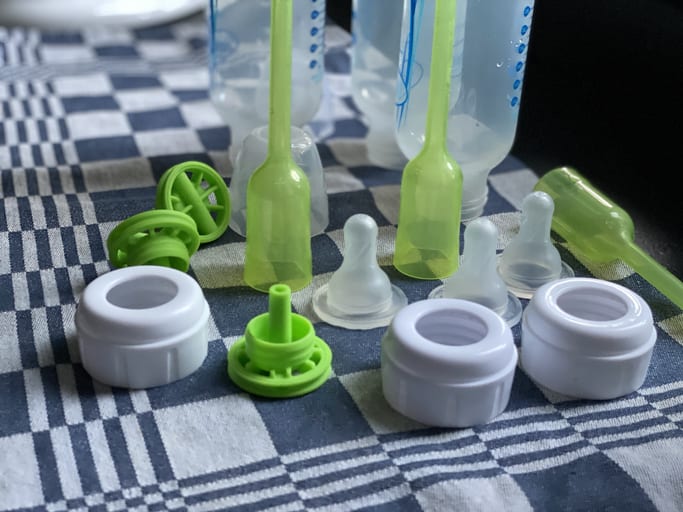
Image Credit: iStock
The researchers continued to sterilize the same bottles over a 21 day period, and found they continued to shed similar amounts of microplastics the entire time.
If you want to minimize the microplastics in your infant’s food, they say there are. few things you can do. First, never reheat formula in a bottle in the microwave.
In fact, avoid the microwave completely whenever possible.
The researchers advise caregivers to prepare the formula in a non plastic container, then, once it’s room temperature (if you heat it – you don’t have to!), transfer it to the sterilized bottle.
The best way to sterilize the bottles themselves is to boil them, the rinse them in room temperature, sterilized water at least three times before filling them with formula.
The researchers are quick to point out the study did not determine any implications in babies’ health – negative or otherwise – but that we do need to spend more money and time researching potential long term effects of microplastic consumption on human health.
So, you know, don’t panic.
Just do the best you can with what you know right now…which is pretty much 90% of what parenting is, anyway.

